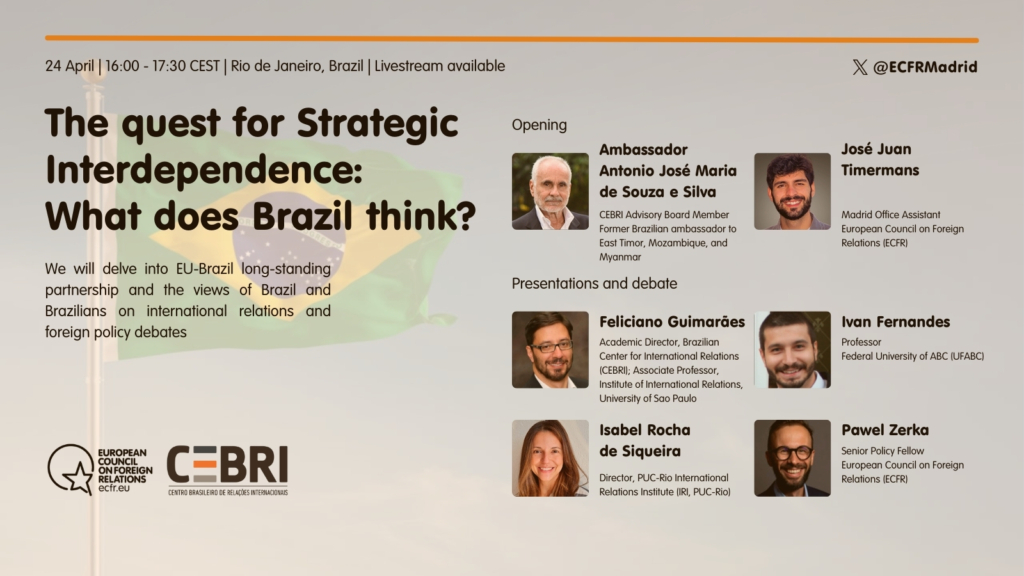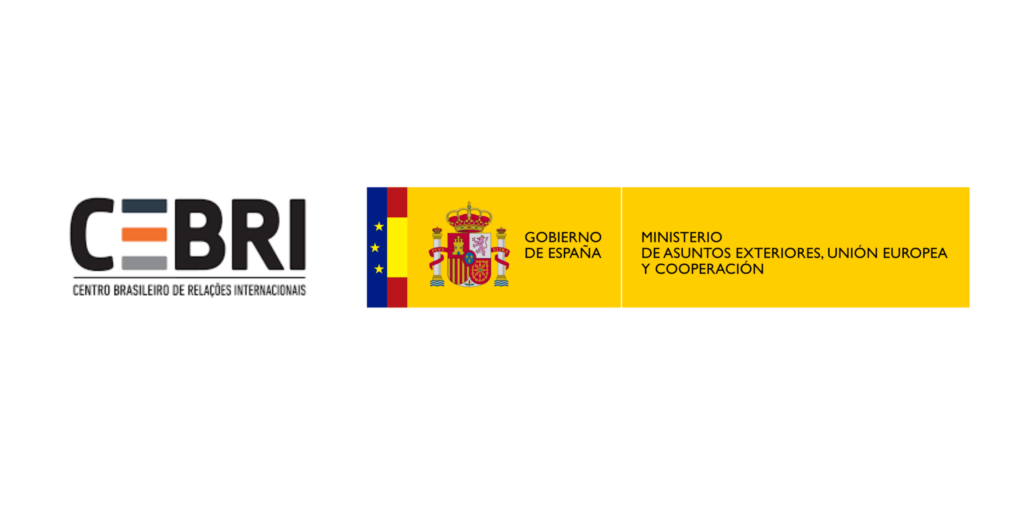The quest for Strategic Interdependence: What does Brazil think?
This event will delve into EU-Brazil long-standing partnership and the views of Brazil and Brazilians on international relations and foreign policy debates
Hybrid event

While the European Union and Brazil have been strategic partners since 2007, at least on paper, it was not until the EU-CELAC Summit in July 2023 that the relationship truly gained momentum. The landmark summit set the pace for more structured political dialogue and gave rise to many cooperation projects on mutual priority issues ranging from the digital transition to environmentalism. Both partners are dedicated multilateralists on issues such as trade and climate. However, the long-stalled EU-Mercosur trade agreement remains a thorn in the side of EU-Brazil relations. The odds for its completion remain low, with France blocking it out of domestic concerns in the run-up to European Parliament elections and Macron’s fragile standing in the polls at home.
The EU and Brazil differ in their views on the main international security crises of the 21st century, from Libya to Syria, and from Ukraine to Palestine. While both partners are advocates for a rules-based international order, Brazil seeks to become the leading voice of the Global South and a promoter of its own multilateral architecture. The unsettling international context has brought the EU and Brazil into closer geopolitical proximity than before. Caught in the crosshairs of systemic US-China competition, Europeans increasingly feel stuck between a rock and a hard place. At the same time, Russia’s invasion of Ukraine has fundamentally shaken the bedrock of the European project. It is thus of utmost importance to look for like-minded partners to sustain the multilateral order and address the main global challenges of today – from climate change to security governance – in a cooperative way.
Europeans consider Brazil a natural partner, eager to pursue an autonomous foreign policy, and beneficiary of close links with the US, Europe, China, and Russia alike. Still, Brazil may not be able to remain ambivalent in US-China rivalry, and between democracies and autocracies more broadly, for much longer. President Lula might increasingly need to pick sides. The quest for strategic interdependence between the EU and Brazil will have to start by adapting to the rapidly shifting regional and international dynamics and rediscover the reasons why they would like to consider each other a partner in the first place.
You can follow the conference online in the link below:
This event is co-organised by ECFR and the Brazilian Center for International Relations (CEBRI).
You can read and download the joint ECFR-CEBRI report titled “Brazilian Public Opinion and the World”, available in English. Led by Feliciano de Sá Guimarães and Ivan Fernandes, the study explores the evolution of Brazilian worldviews. This report provides an in-depth analysis of Brazilian public opinion on international issues from 2011 to 2023.
Agenda
Public event
Opening
- Ambassador Antonio José Maria de Souza e Silva – CEBRI Advisory Board Member, Former Brazilian ambassador to East Timor, Mozambique, and Myanmar
- José Juan Timermans – Madrid Office Assistant, European Council on Foreign Relations (ECFR)
Presentations and debate
- Feliciano de Sá Guimarães – Academic Director, Brazilian Center for International Relations (CEBRI); Associate Professor, Institute of International Relations, University of São Paulo
- Ivan Fernandes – Professor, Federal University of ABC (UFABC)
- Isabel Rocha de Siqueira – Director of PUC-Rio’s International Relations Institute (IRI, PUC-Rio)
- Pawel Zerka – Senior Policy Fellow, European Council on Foreign Relations (ECFR)
Moderated by Feliciano de Sá Guimarães, Academic Director, Brazilian Center for International Relations (CEBRI); Associate Professor, Institute of International Relations, University of São Paulo
With the cooperation of

